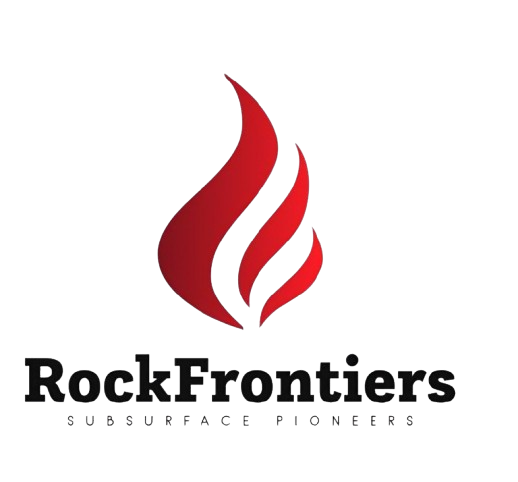Course Description
Oil spills are among the most devastating environmental disasters, causing long-term damage to marine ecosystems, coastal zones, and local economies. This course provides comprehensive training on oil spill prevention, preparedness, response, and recovery strategies in line with international best practices (IMO, OPRC, MARPOL, IPIECA).
Participants will develop technical skills for spill risk assessment, contingency planning, response techniques, containment, recovery, and remediation. The course combines theoretical knowledge with real-world case studies, hands-on simulations, and interactive group exercises.
Learning Objectives
By the end of the course, participants will:
-
Understand the causes and consequences of oil spills
-
Apply spill risk assessment and prevention strategies
-
Master response operations, including containment, dispersants, skimming, and recovery
-
Understand shoreline protection, clean-up techniques, and waste management
-
Develop effective oil spill contingency and emergency response plans
-
Explore post-spill recovery, remediation, and environmental restoration
-
Navigate regulatory frameworks and stakeholder engagement
Who Should Attend?
-
HSE Managers and Officers
-
Environmental Engineers & Specialists
-
Marine Operations Personnel
-
Emergency Response Teams
-
Oil & Gas Operators (Upstream, Midstream, Downstream)
-
Government Regulators and Coast Guards
-
Port & Terminal Operators
-
Risk and Crisis Management Professionals
Training Format
-
Instructor-led lectures
-
Real-life case studies (Exxon Valdez, Deepwater Horizon, etc.)
-
Group tabletop exercises and role plays
-
Spill response equipment demonstrations (optional for in-person)
-
Contingency planning workshops
-
Video simulations and incident reviews
5-Day Detailed Agenda with Time Breaks
Day 1: Understanding Oil Spills and Environmental Impacts
| Time | Topic |
|---|---|
| 08:30 – 09:00 | Registration & Welcome |
| 09:00 – 10:30 | Types of Oil Spills & Historical Case Studies |
| 10:30 – 10:45 | ☕ Coffee Break |
| 10:45 – 12:15 | Environmental and Economic Consequences of Spills |
| 12:15 – 13:15 | 🍽️ Lunch |
| 13:15 – 14:45 | Oil Behavior in Marine and Freshwater Environments |
| 14:45 – 15:00 | ☕ Coffee Break |
| 15:00 – 16:30 | International Conventions & Legal Frameworks (OPRC, MARPOL, CLC, FUND) |
Day 2: Spill Prevention and Risk Assessment
| Time | Topic |
|---|---|
| 08:30 – 10:00 | Oil Spill Risk Factors: Exploration to Transport |
| 10:00 – 10:15 | ☕ Coffee Break |
| 10:15 – 12:15 | Preventive Measures and Operational Best Practices |
| 12:15 – 13:15 | 🍽️ Lunch |
| 13:15 – 14:45 | Risk Assessment Methodologies (HAZID, HAZOP) |
| 14:45 – 15:00 | ☕ Coffee Break |
| 15:00 – 16:30 | Oil Spill Contingency Planning (OSCP) Basics |
Day 3: Response Strategies and Emergency Management
| Time | Topic |
|---|---|
| 08:30 – 10:00 | Oil Spill Response Phases & Command Structures |
| 10:00 – 10:15 | ☕ Coffee Break |
| 10:15 – 12:15 | Containment and Recovery Techniques (Booms, Skimmers) |
| 12:15 – 13:15 | 🍽️ Lunch |
| 13:15 – 14:45 | Use of Dispersants: Pros, Cons & Regulations |
| 14:45 – 15:00 | ☕ Coffee Break |
| 15:00 – 16:30 | Exercise: Emergency Response Team Roles & ICS |
Day 4: Shoreline Protection and Environmental Recovery
| Time | Topic |
|---|---|
| 08:30 – 10:00 | Shoreline Response Strategies & Clean-up Options |
| 10:00 – 10:15 | ☕ Coffee Break |
| 10:15 – 12:15 | Waste Management and Disposal of Recovered Oil |
| 12:15 – 13:15 | 🍽️ Lunch |
| 13:15 – 14:45 | Environmental Monitoring & Damage Assessment |
| 14:45 – 15:00 | ☕ Coffee Break |
| 15:00 – 16:30 | Case Study: Post-Spill Environmental Restoration |
Day 5: Incident Investigation, Recovery & Final Exercise
| Time | Topic |
|---|---|
| 08:30 – 10:00 | Spill Incident Investigation & Root Cause Analysis |
| 10:00 – 10:15 | ☕ Coffee Break |
| 10:15 – 12:15 | Stakeholder Communication & Media Management |
| 12:15 – 13:15 | 🍽️ Lunch |
| 13:15 – 14:45 | Final Exercise: Spill Simulation & Action Planning |
| 14:45 – 15:00 | ☕ Coffee Break |
| 15:00 – 16:30 | Debrief, Lessons Learned & Certification Ceremony |
Certification
Participants will receive a Certificate of Completion in Oil Spill Prevention, Response, and Recovery.





